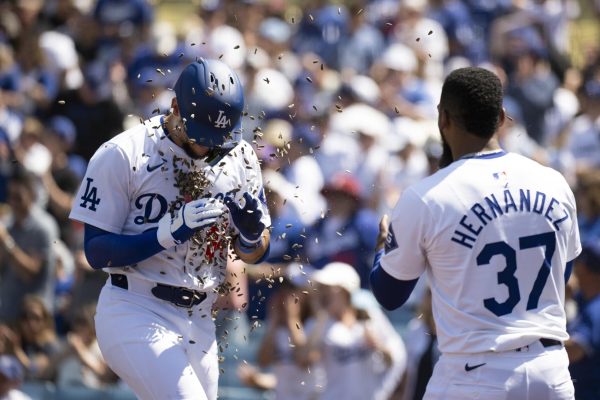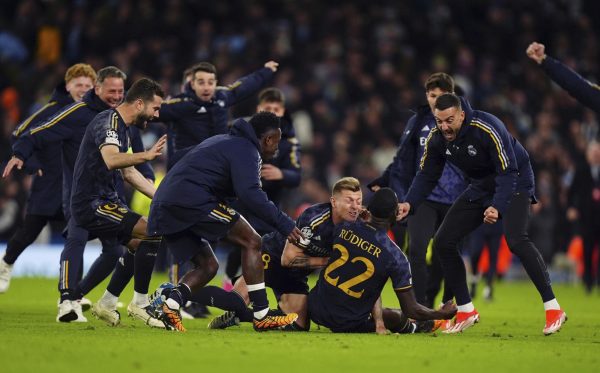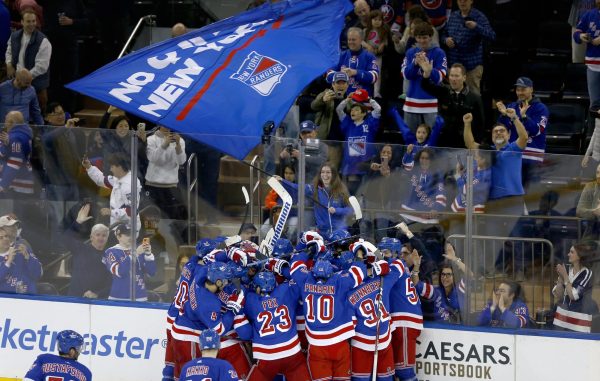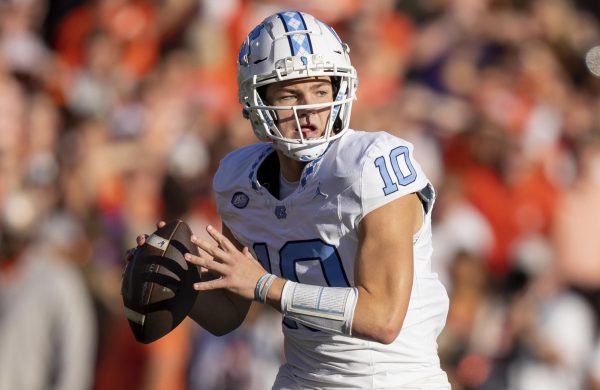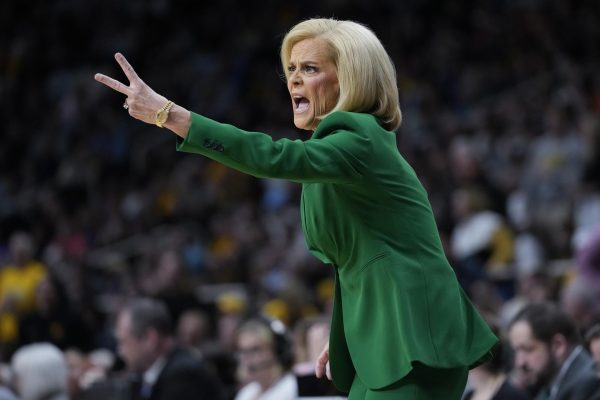Countdown to South Africa: Group G
What makes the World Cup so interesting – besides the nationalistic pride, grand ceremonies and thrilling soccer – is the dichotomy between teams. On one hand, you can have countries like Brazil, participants in every World Cup since the tournament’s origin. On the other, there are countries like North Korea, making their first appearance in four decades. These two combine with Portugal and Côte d’Ivoire, relative newcomers to the top tier of international football, to form Group G. Brazil, Portugal and Côte d’Ivoire are the obvious headliners in this collection, rightfully giving the group the title of 2010’s “Group of Death.”
Brazil
In South American World Cup qualifying, Brazil finished in first place, but disappointed with a 9-2-7 record, due in large part to a very slow start. Brazil tied three games out of their first six, drawing Colombia and Peru away, while drawing with Argentina at home. Their early qualification campaign was marred with inconsistency. In some games they would come out like the offensive juggernaut of old, while in others they would fail to produce anything offensively, getting shutout four times, including a 2-0 defeat in Paraguay.
In the second half of qualifying, Brazil played more consistent football. While they still had a disconcerting amount of ties, they were playing better, displaying what fans have coveted as the Joga Bonito. Dominant victories in Uruguay and Argentina sealed their qualification.
The Brazilian side, along with Spain, possesses one of the most complete squads in the world. They arguably have the best goalkeeper in the world in Julio Cesar, the primary reason for their confederation-low 11 goals allowed in qualifying. La Canarinho also has the deadliest offense on the planet, having scored 33 goals in 18 games during the qualifying rounds and boasting names such as Kaka, Robinho and Luis Fabiano. Brazil is strong in every position, so it comes as no surprise that they are one of the favorites to win the World Cup for a record sixth time.
The World Cup is synonymous with La Verde-Amaraela as they are the only squad to have participated in every tournament to date. In 2006, they lost to eventual runners-up France in the quarterfinals, 1-0, failing to reach their fourth consecutive final. Their most recent title came in 2002, where they won their fifth title, surprising many critics who deemed the 2002 team as one of the
weakest Brazilian sides of all-time.
Player to watch: Real Madrid’s Kaka is the anchor of the potent Brazilian offense. In recent years he has taken a leadership position in the team’s offensive corps and has become the team’s go-to guy. While Brazil will receive scoring from many different players in their lineup, he will be the one looked upon to score the big goals when needed, as he has done in recent years. This is his time to shine.
Côte d’Ivoire
Côte d’Ivoire had an easy time getting through FIFA World Cup qualifiers. They won all six of their home qualifying matches in the two rounds of qualifying, winning their final three home qualifiers by a combined 13-0 margin. Their road form, however, was much less impressive. Away from the comforts of Abidjan, Les Éléphants tied lowly opponents in the form of Mozambique, Botswana, Madagascar and Malawi, and scraped by Burkina Faso and Guinea by one goal each.
Côte d’Ivoire has only participated in one World Cup, the 2006 edition. While they did not advance to the Round of 16, having been in one of the toughest groups along with Argentina, Serbia and Netherlands, Côte d’Ivoire impressed the global audience with their aggressive style and their speed. Though they only won one match, a 3-2, comeback victory over Serbia & Montenegro in their final group stage match, many observers thought they could have gone far, had they been placed in an easier group.
Player to watch: Chelsea forward and national team captain Didier Drogba is one of the best football players in the world. During his time with Chelsea, Drogba has scored an impressive 80 goals in 161 games. He is also Côte d’Ivoire’s all-time leading scorer with 43 goals in 66 contests. If he is on his game when the summer comes around, Les Éléphants might pull an upset and advance to the second round, or perhaps even further. Their chances are also improved by the recent hiring of former England and Mexico manager, Sven-Göran Eriksson.
Korea DPR
North Korea is, obviously, the minnow of this edition of World Cup. 2010 will mark their first appearance in the World Cup since 1966, where they shocked the world by beating Italy and being the first Asian team to advance past the group stages of the tournament. Obviously, very little is known about the Chollima, but no one has high expectations for them. Kim Jong-il’s government has already announced that none of their matches will be shown on television, unless, of course, North Korea wins. Players in the North Korean domestic league are virtually unknown outside of the country’s borders, as it is impossible to watch these players unless they are playing for their national side. Perhaps they have the next Pele waiting in the wings, but I doubt it.
The best North Korea can realistically hope for is not to get embarrassed by their ridiculously talented group opponents. They had a very stingy defense in their final World Cup qualifying group, allowing just five goals in eight matches, demonstrating that this will likely be critical to their South African performance. Nam Song-Chol is the most experienced member of the defensive unit, amassing 42 caps for his country, while plying his club trade for April 25 Sports Group, one of the larger clubs in North Korea.
At the very least, North Korea matches will give viewers around the world a look at one of the most secretive places in the world, and a chance to learn about footballers and a team they have never seen before.
Player to watch: Kawasaki Frontale striker Jong Tae-Se. Jong is a North Korean citizen, born in Japan to South Korean parents (long story – Google it) which allows him, unlike native-born North Koreans, to play his club game outside the country. This experience shines through when he plays for North Korea, for whom he has scored 12 goals in 20 appearances. Jong is one of the top goal-scorers in the J-League (Japan), tying for sixth in the league with 14 goals in 2009, while leading Kawasaki to the quarterfinals of the AFC Champions League. If North Korea is to pull off a shock akin to their 1966 win over Italy, it will likely be Jong Tae-Se who puts the ball in the back of the net.
Portugal
Despite being considered one of the world’s top teams (ranked fourth in the FIFA World Rankings), Portugal has had very little historical success. 2010 marks just their fifth appearance in the World Cup, though it is the third consecutive trip to the tournament for the Selecção das Quinas. In 2006, courtesy of one of the easiest groups the World Cup draw has ever tossed up, Portugal rolled through the group stages and beat the Netherlands and England in the knockout stages, before bowing out in the
semifinals to France.
This Portugal side, however, is markedly different from the one that did so well in Germany 2006. Gone are Portuguese legends Luis Figo and Pauleta, and Deco is no longer the toast of the football world. Cristiano Ronaldo has continued his stellar club play since his summer move to Real Madrid, but he has not scored for Portugal in a competitive match since 2008. They struggled in World Cup qualifying, with a home loss to Denmark and a home draw against lowly Albania, before finishing second in their qualifying group behind the Danes. It took a playoff win over Bosnia and Herzegovina for the Portuguese to finally earn their spot in South Africa, and given the recent rise in the country’s football stature, the process should not have been so difficult.
Despite the loss of former stars, Portugal still boasts some top-caliber players. In attack, in addition to Cristiano Ronaldo, they have Benfica forward Nuno Gomes as well as Atletico Madrid cornerstones Simão and Tiago. In defense, they boast the Chelsea trio of Jose Bosingwa, Ricardo Carvalho, and Paulo Ferreira, capable of shutting down any attack the world throws at them.
Of major concern, to Portuguese fans around the world, however, are the credentials of manager Carlos Queiroz. He has been among the world’s best assistant managers, serving as Sir Alex Ferguson’s right-hand man at Manchester United throughout the past decade. When on his own at the helm of a team, however, Queiroz has had almost no success. In the early ‘90s, his first stint with Portugal, he failed to qualify the team for either the 1990 World Cup or Euro 1992. Over the course of his 20-year managerial career, he has won just one major title, the 1995 Portuguese Cup, despite being the manager of a number of high-spending, prestigious teams. On the highest level, Queiroz has continually shown an inability to get the best out of his players, which does not bode well for Portugal this summer.
Player to watch: Captain Cristiano Ronaldo. As one of the world’s best players, all eyes will be on CR9 in South Africa. Ronaldo must, like he did with Manchester United, throw his team on his shoulders and carry them to glory. Unfortunately, he does not have the same supporting cast he did with the Red Devils, and the task will be infinitely more difficult in the World Cup. For Portugal to make a deep run, Ronaldo will need to be at his best in every match, for all
90 minutes.


